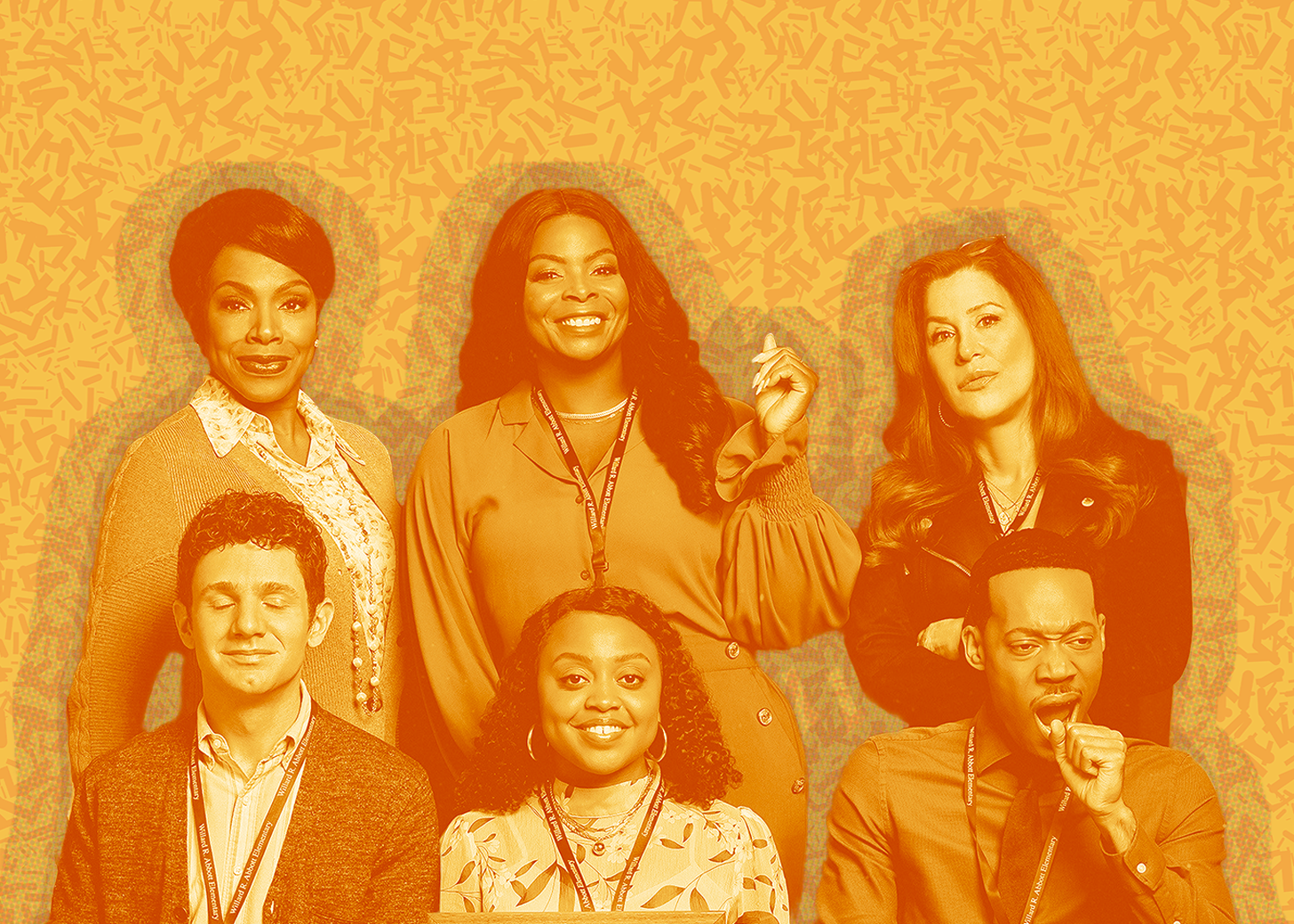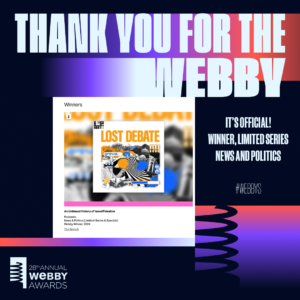This article originally appeared on Imbroglio. Imbroglio is a newsletter from The Branch about how we bring about the education revolution. Most of our posts will focus on the future of K-12 and higher education, but we’ll also cover the imbroglio itself — the politics, misdirection, the excuse-making, the mediocrity. Occasionally we’ll also meander into the general science of learning outside of the traditional education system.
Image Credit: Warner Brothers
Let’s get some background out of the way:
- Abbott Elementary is a popular show on ABC about a group of educators at a traditional public school.
- The show’s creator is a woman named Quinta Brunson, who attended a public charter high school.
- Season two of the show features a storyline about a charter school that opens up across the street.
- The story is not flattering for charter school supporters.
As you can imagine, I’ve received many nervous messages from educators asking how we “handle” the show’s treatment of charters.
Let’s start with how you shouldn’t handle it. Exhibit A is the following tweet from a woman named Jeanne Allen, who is the founder of the Center for Education Reform:
Quinta Brunson responded with the following:
Adding:
As I see it, there are several problems with Jeanne’s approach here. I don’t know her and don’t want to pile on what has likely been for her a tough few days. But we can learn a few lessons from how she handled this.
First, it’s important to emphasize that Brunson is an alumnus of a charter school. That means she was once one of our students. And we love our students as much when they are adults as we did when they were kids. Every time we engage them, including on issues with which we may disagree, we should do so from a place of compassion. We should also assume the best, which is not what Jeanne did when she accused Brunson of being motivated by profit.
Second, the profit motive accusation is absurd. The show was already popular, and I can’t see why Brunson would have profited more from an anti-charter plot than a pro-charter plot. (Though, I can attest that being pro-charter is often a humorless existence.)
Third, it’s a TV show. I confess to being frustrated with the show’s treatment of charter schools the first time I saw it (I even podded about it), and I continue to be frustrated by how the haters have weaponized it. But it’s a fictional show, not a Frontline documentary. When we fight art with logic, we look lame. Now, we should treat differently any statements Brunson or others (like Nikole Hannah-Jones, Congressman Jamaal Bowman, or Jessica Winter from the New Yorker) make about charters outside of the show. I’ll get to that below.
Fourth, to the extent there is a debate to be had with Brunson, Jeanne Allen is not the one to be having it. There are times when everyone — from grassroots to grasstops — has a role. This isn’t one of those times. It would be one thing if Jeanne were arguing with commentators trying to make meaning of the show to shape policy (we should all fight that stuff), but we should step aside and let others with a more authentic connection to Brunson’s experience engage with her on the meaning of the show.
Fifth, if we insist on engaging Brunson, start with curiosity. I’d love to interview her and learn more about her experience and how it shaped the show. I have friends who I respect a ton who’ve worked for the network that ran her school, but I don’t know a lot about their model, their performance, or the particular campus she attended.
Sixth, there’s a way to view this saga as flattering to charter schools. She’s one of our alumni, after all, and she made it big. She must have received a great education to be able to write and lead like she does. I can also sympathize entirely with her conflicting feeling of love and frustration with her experience. Her journey reminds me of years ago when many of my fellow Staten Islanders hated Pete Davidson because they felt he talked down about them, which he occasionally did. He also loved the island, which became apparent over time when he did works like The King of Staten Island or this unforgettable video. People are complicated.
Now, let’s take our focus off Brunson and examine the broader context. There’s a concerted effort by affluent, mostly-white progressives to undermine the kinds of school choice they don’t use (charters, vouchers) and defend their methods of choice (neighborhood schools, private schools, selective admissions magnets). I’ve written about this at length. These elite liberals often hide behind intellectuals of color who agree with them (e.g., Nicole Hannah Jones, Ibram X. Kendi) while ignoring and attacking those who support school choice (e.g., Howard Fuller, our very own Chris Stewart). They want to smuggle false claims about charters through the debate around Abbott Elementary. Claims like:
- Charters receive more money
- Charters aren’t popular
- Charters don’t perform as well
- Charters don’t serve special needs students as well
I’ve spent years battling back these claims. For most of them, there’s extremely compelling evidence for the exact opposite. I don’t need to go through that data here, but we’ve done many many podcast episodes outlining the contours of those debates.
The point is we have a gazillion advocacy and communications people who ostensibly get paid to tell the truth about charter schools, and we have countless alumni who’ve had wonderful experiences at their schools. Get out there and push back against the army of blue checkmarks and out-of-touch journalists pushing false claims instead of attacking Brunson’s character.
This saga should also underscore that you should build your own rails if you don’t like the tenor of journalistic coverage. It’s never been easier to start a new publication and to build an audience.
And if you don’t like Abbott Elementary, create your own art. A few years ago, a Hollywood studio asked me to write a show about my experience as the principal of a charter school. I wound up writing a treatment for a show (it was never made) that had less to say about education policy than about criminal justice issues and race, in part because the didactic debate around charters and reform makes for lame art. Perhaps that’s what Brunson was grappling with. It’s hard to make the stuff we do poetic or funny. I couldn’t do it. If you can, let me know and I’d be happy to help.




